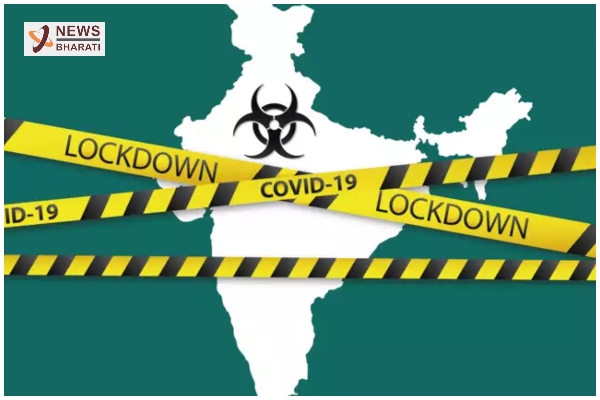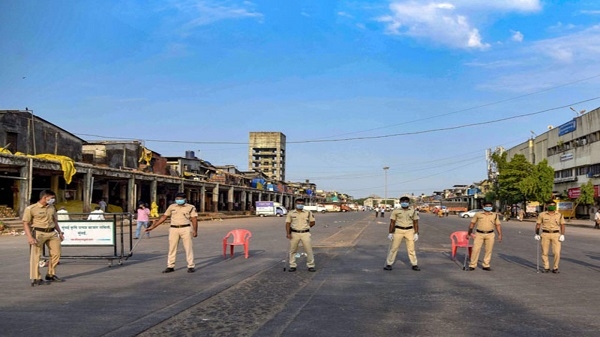Life after lockdown - Will we emerge stronger?
01 Apr 2020 11:15:46
The true challenge of a national lockdown is that while individually it is hardly challenging to adhere to (especially since essential services are not restricted), collectively it is a nightmare to implement. The administrator’s world-over understand that for the lockdown to succeed, they need co-operation of at least the financially stable part of the demographic. In this light, praising urban, middle class people for abiding by the lockdown seems like a logical choice.
In a tweet on 28th March, Mahindra Group Chairman Shri Anand Mahindra asked what would change permanently and what would revert to normal in the post COVID-19 world. Many people responded with optimism, claiming that we would be closer to our families, have a renewed sense of community and environmental awareness etc. While history is full of examples where nations and societies faced overwhelming challenges together, and emerged stronger and better for it, I do not share their optimism. The reasons lie both in the nature of the times we live in, as well as what the crisis has asked of us.

To start with, I think we would agree that for a generation defined by its sense of entitlement, hedonism and narcissism, COVID-19 was, if not the perfect crisis, then certainly one with the best solution. For today’s ‘mah lyf, mah rulz’ Gen-Xers and their older self-esteem generation counterparts, spending more time by themselves is not even much of a change in lifestyle, let alone a sacrifice. I cannot think of a time in human history that was more tailor-made for the concept of isolation.
The true challenge of a national lockdown is that while individually it is hardly challenging to adhere to (especially since essential services are not restricted), collectively it is a nightmare to implement. The administrator’s world-over understand that for the lockdown to succeed, they need co-operation of at least the financially stable part of the demographic. In this light, praising urban, middle class people for abiding by the lockdown seems like a logical choice. Every politician in every speech is giving lip-service to this. An ad showing various healthcare professionals asking you to stay at home is titled ‘Be a hero, save lives, stay at home’. It is safe to say that this is first time in recorded human history that heroism is conferred just for staying at home. Netflix and chill- oh the sacrifice! Not stepping out of your house for 21 days? I am sure the 18- and 19-year olds who jumped out of planes in places called Normandy and Omaha in June 1944 would have applauded. The sheer horror of staying at home, putting the pictures of what you are eating on Instagram, and swapping binge-watching recommendations, I tell you! To paraphrase war-time British PM Churchill, never before so much credit was given to so many for doing so little!
Don’t get me wrong- I support social distancing, and I understand the restrictions it imposes on your lifestyle. I am also not one of those humourless Hollies who take offence at people having a good time in general. It is just that by setting the bar of heroism and sacrifice low, we have turned ordinary people into self-righteous, demi-vigilantes with no empathy for the suffering of those less fortunate than themselves. This apathy has manifested itself in rather unappetizing forms on social media.
There is no doubt that for millions of poor Indians, loss of livelihood even for a period of 3 weeks is a virtual one-way ticket into destitution that may very well result into deaths. However, the day after the lockdown was announced, the majority of answers to this concern were of a simple “jaan hain to jahan hain” type of binaries. The fact that for many Indians, there would be no jaan in 3 weeks’ time has simply not occurred to the educated, urban social media user. To make matters worse, when the sickening images of police high-handedness in several places emerged on social media, a large section of social media users played cheerleaders to the uniforms. Platitudes like ‘Indians only understand rule of force’, ‘Police have a thankless job’ were thrown around rather self-righteously. Some even blamed the migrants, who had walked unimaginably long distances on empty stomachs, for being irresponsible and spreading the illness. The underlying message was clear- why can’t the poor people be responsible, correction- heroic, like us, and stay home? This is the 21st century version of ‘if they don’t have bread, why don’t they eat cake’. Just how did we arrive at this level of self-righteous arrogance?

The fault, perhaps, lies not in the individuals themselves, but in a culture that can be best described as the one of soft bigotry of low expectations; cultivated in equal parts by the education system, media, popular culture and politicians. We live in times where the legally mandated act of paying your taxes is considered heroic. In popular culture, a movie star appearing without make-up, or flaunting additional weight, is hailed as brave. Education systems worldwide have turned into places of institutionalized child worship, where children are constantly taught that they are the most important person in the world, and that their sense of self-worth should not be tied to any form of measurable achievement. From Prime Minister Lal Bahadur Shastri calling for Indians to eat only once to aid the war effort and US President John F Kennedy’s appeal to ‘ask not what your country can do for you’ to the present day, we have lost the very thread to what constitutes fundamentally praise-worthy behaviour. In these circumstances, is it any surprise that people think merely staying at home entitles them to preach others?
To accept that for Delhi’s migrants staying at home is not an option, is in a way putting into perspective the sacrifice financially stable people are actually making by staying at home. Introspecting how we collectively have failed to such a large number of our fellow countrymen is to realize how little we are actually doing in the war on COVID-19. That is a hard pill to swallow in these mollycoddled, entitled times. So naturally, the fault must be found with the silly migrants who, against government advisory, and in spite of the heroic example of many Indians like us, insist upon heading home.
And that is the precise reason why while we would emerge from this crisis, I am not sure we would emerge stronger, more united or even simply better as human beings. We haven’t asked enough of ourselves for us to break out of our comfort zone and gain a little perspective. The illusion of collective suffering might be good at reinforcing political beliefs, but it will do nothing to create a stronger-at-core, more empathetic society. If the larger goal is to create a better society post COVID-19 then perhaps we need to make an effort to redefine terms like sacrifice and heroism, and then demand more out of ourselves.
Jai Hind. Stay Home, Stay Safe!